Red is the new black, stripes are in, romanticism is out, double denim is back… For decades, fashion trends – determined by what designers put out on the catwalk as well as what is worn by celebrities, and more recently, street stylers and influencers – have been key when it comes to deciding which clothes to buy each season. The idea of trends, however, has been rightly questioned in recent years, with the fashion industry attempting to rework itself onto a more sustainable path as the climate crisis becomes an unavoidable issue. The pandemic has helped to highlight this even further as luxury consumer buying habits shift sharply away from flash-in-the-pan, trend-led items and onto investment pieces and more practical purchases. However, could this movement away from trends be seen simply as a trend in itself? Will a post-pandemic celebratory world actually lead to more trend-led dressing than ever? And, can we ever solve the problem we seem to have with newness?
One thing is for sure, consumer behaviour is shifting. That is something that most luxury retailers agree on – and is why many are adapting their business models to accommodate for this transition. Facing the reality of climate change has become impossible to ignore and many luxury consumers are altering how they shop and what they are willing to spend their money on. This behavioural trend has been emerging in recent years – and certainly looks to have been heightened by the impact of the pandemic.
“Customers are really making more considered and thoughtful purchases as a result of the global pandemic and are making sharp changes to their lifestyle,” Holly Tenser, the ready-to-wear buying manager at Browns tells me. “They are definitely seeing the value in investing in good quality and timeless pieces that make up your classic and sustainable wardrobe base.”
At Net-a-Porter too, the shift has been significant, senior market editor Libby Page says.
“Customer habits over the course of last year have changed dramatically," she explains. "We noticed a shift away from trend-driven items and a move into more timeless product. Our customers are shopping with a purpose and showing their interest in brands and projects which are more inclusive and diverse, sustainable and charitable.”
“We are banking on seasonless fashion, pieces that will stand the test of time, regardless of the weather, including luxury bags and fine jewellery,” she adds. “Shopping with a conscience seems to be the new approach, and sustainability is at the forefront of this.”
At Matches Fashion, Farfetch and Flannels too, buyers have seen similar shifts in customer behaviour – and all are responding accordingly by setting up sustainable-fashion sections on their sites, investing in planet-friendly and timeless designs, and some are even making an entrance into the resale market.
“We have noticed over the past year that our customers are making more considered purchases of investment items that they will cherish and wear for years to come, whether that is a piece of fine jewellery, a heritage handbag or a key piece of outerwear,” Natalie Kingham, global fashion officer at Matches tells me. “The idea of building the forever wardrobe was a key factor in the launch of our Wardrobe Foundations Edit, a curation of these timeless investment items that will never go out of style.”
Stocking pieces designed with longevity in mind is a recurring theme among retailers, with shoppers favouring styles that aren't immediately identifiable as being from a specific collection or season.
“People are more mindful of the planet and their impact on it – we have definitely seen a real surge in our pre-owned and conscious categories,” Harriet Hawksworth, editor-in-chief of Farfetch, adds. “Seasonless fashion has become very popular; these are timeless and well-made, beautiful pieces that won’t date and can be worn flawlessly from season to season.”
It is difficult to deny then that the changes that were already in motion regarding luxury consumer attitudes to trends have been exaggerated by the pandemic – but, aside from having no desire to buy something we cannot wear right now, what else is behind it?
“The pandemic has been a great unifier in a sense; it has made us more socially aware and has increased people’s desire to contribute to the greater good, whether that’s for key workers, people who are suffering, or being more mindful of the environmental impact of the goods we purchase,” Francesca Muston, VP of fashion content at trend-forecasting company WGSN says, explaining that she expects these developments to continue.
In this sense, we can expect that weight will continue to be added to the practicality, usefulness and longevity of a fashion item – and that consumers will continue to turn away from something considered ‘trend-led’. However, many buying experts are actually, ironically, describing this shift towards trend-less purchasing as just another trend in itself – implying that the movement is simply a temporary one, and one which ultimately won’t stop consumers being tempted by something new and shiny.
“Customers always want newness, inspiration and fresh ideas so I don’t think that trends will be going away anytime soon,” Natalie Dickson, head of women’s luxury buying for Flannels says, adding that she actually thinks that now is the time when brands need to be more innovative than ever in order to interact with their customers through trends, collections and storytelling.
Tenser describes the shift in spending habits and desired items as “a trend in itself” and Hawksworth agrees: “As long as luxury fashion exists, there will be trends. Moving away from trends is, in itself, a trend. It just means buying really chic, simple and seasonless clothes in muted colours. If anything, Instagram and our reliance on it has increased our appetite for trends – something can catch like wildfire, like the cult of a North Face puffer.”
They, like many others, also believe that a post-pandemic world will lead to a more joyful, celebratory way of dressing than most of us have ever lived through. Will we mimic what we saw in the 1920s, where a post-war, post-pandemic generation dressed up more than ever?
“After the year we’ve had, we will all want to treat ourselves and get dressed up in bright and colourful clothes again,” Dickinson says, pointing to the notable ‘dopamine dressing’ we have seen in the most recent designer collections. “This ties into the bold prints, feathers and colour-blocking trends we have bought into for the coming season. People will be dressing up for themselves and for their own happiness – they won't need a reason to dress up.”
Flannels is not alone in banking on this. Page says that Net-a-Porter has invested in more than 3,000 “bold, joyful dresses” for spring/summer 2021, while Matches is expecting customers to add “joyful pieces” into their wardrobes this spring as a “welcome escape” from what we’ve lived through. But, Kingham does believe that the two ideas can live in harmony.
“There is still an appetite for newness and I do believe trends will continue to emerge, however this will be countered with a desire for beautiful and versatile investment pieces that can be worn and kept for years to come.”
Muston, on the other hand, says that WGSN is predicting a permanent change in consumer priorities – and a future that retailers need to be smart about approaching.
“On the road to recovery, brands and retailers will need to look at their assortment in a completely different way as new priorities will drive spend. How sustainable is it? Can you offer complete transparency about how it was made? What are the options for keeping it in a circular system post purchase? How innovative and effective is it in terms of fabric properties and design elements? How relevant and adaptable is it for consumers’ lifestyles? Is it multi-purpose and flexible? Additional time spent on answering these questions will pay off.”
Muston explains that there will be a focus on “hero products that can hold their full price value” and that some of the ‘trends’ we have seen in the pandemic are not just fleeting ones.
“Loungewear will not be temporary. It will have a bigger share of the market because we will continue to spend more time in our homes,” she says. “Fundamentally every fashion business should now be challenging their business model, questioning the product approach and tracking how customer lifestyles and values are shifting.”
She adds: “The biggest mistake any brand or retailer can make is to assume that they know what customer product priorities will be when they come out of this period.”
Ultimately, Muston believes that things will change because they have to.
“2021 does not only represent the path out of the pandemic, it is also a critical step towards the looming and sinister deadlines of the climate emergency, which is why it cannot be a return to anything: it must be a route forward which involves wholesale restructuring and rethinking in order to minimise waste and impact.”
She believes that consumers will re-evaluate their decision-making when it comes to fashion and that their priorities will change for good – but this doesn't mean that we won’t be investing in beautiful, joyful, mood-boosting fashion. Rather, the focus will be on appreciating the creativity, the time and the work that has gone into a design. It will be about moving past those short-lived, one-wear buys and having more appreciation for designers, for fashion and for our wardrobes than ever before.
“It should lead to a deeper engagement and appreciation of our clothes,” Muston says. “For many, it's about rediscovering what it really means to have favourite pieces and go-to outfits rather than a transient relationship with our clothes which is led by novelty.”
Ultimately, she predicts that consumers will be ever more invested in how and where their clothes are made, the credentials of the designer and the story behind the style. They'll want to spend their money with brands that reflect their values and support designers whose work they admire. In this sense, storytelling – both creative and literal – has never been more important.
“A deeper relationship means truly understanding where our clothes come from, the cotton, the garment workers, the design details and craft,” Muston continues. “If we know our clothes better then we will appreciate them more. There should be no shame in repeating looks, but there will be increasing shame in wearing looks which have a negative impact on people or the planet.”
So, while we could see passing, transient ‘trends’ as we once know them have less of an impact as we move forward, this won’t take away from the beauty or fun to be found in luxury fashion, nor a consumer's desire to indulge in a little newness (after all, don't we all deserve a treat right now?) Instead, it should simply serve to heighten our understanding and appreciation for the clothes we choose to spend our money on, with a renewed emphasis on buying for the long term, rather than the short. No longer will shoppers be quite so concerned with buying a piece simply because everyone else is wearing it, or because it's the latest 'it-item', or in a vague attempt to look and seem cool, but instead find themselves investing in a piece because of its story, its craftsmanship, and the special place it will hold in their wardrobes – and that certainly feels like something to celebrate.
In need of some at-home inspiration? Sign up to our free weekly newsletter for skincare and self-care, the latest cultural hits to read and download, and the little luxuries that make staying in so much more satisfying.
Article From & Read More ( Are trends no longer in fashion? - harpersbazaar.com )https://ift.tt/2LGp0OM
Fashion
Bagikan Berita Ini
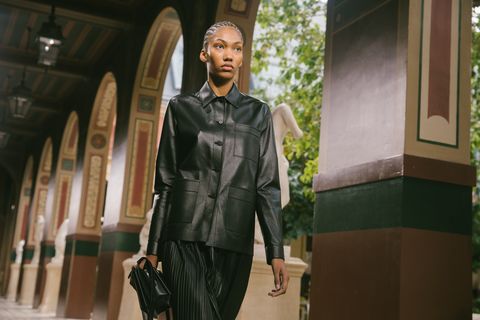
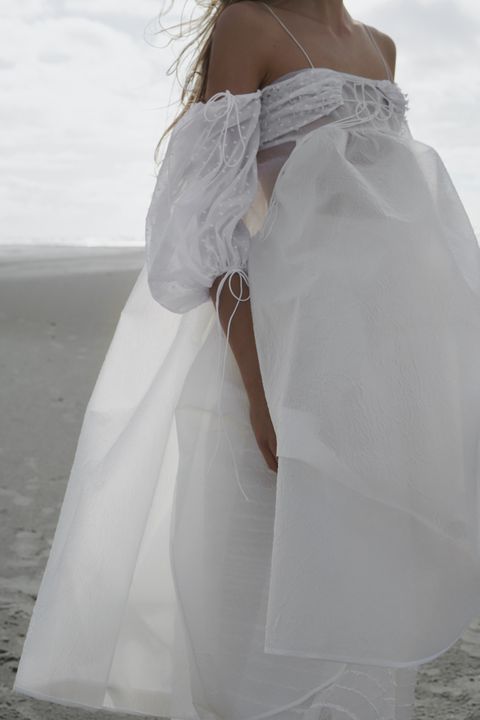
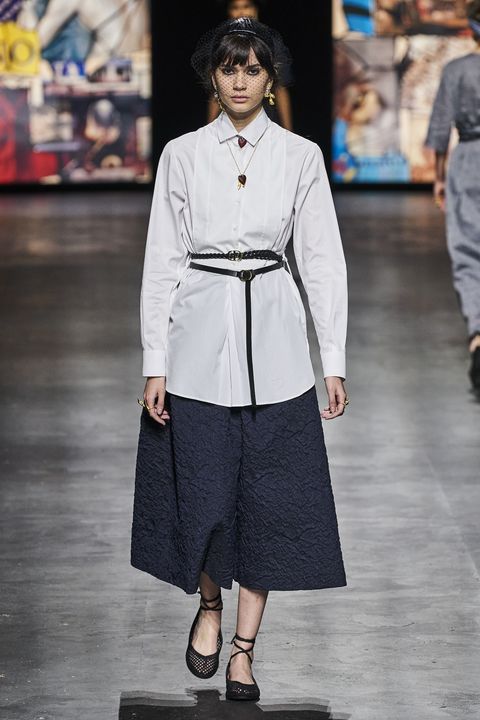
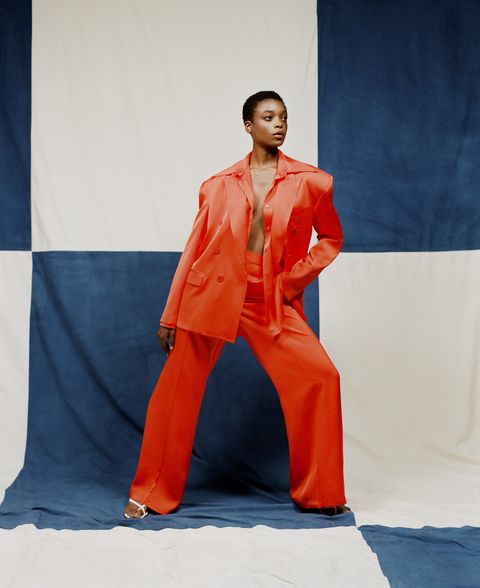
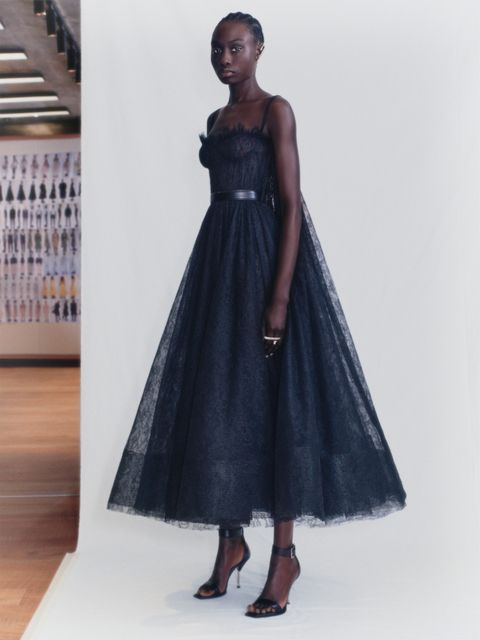
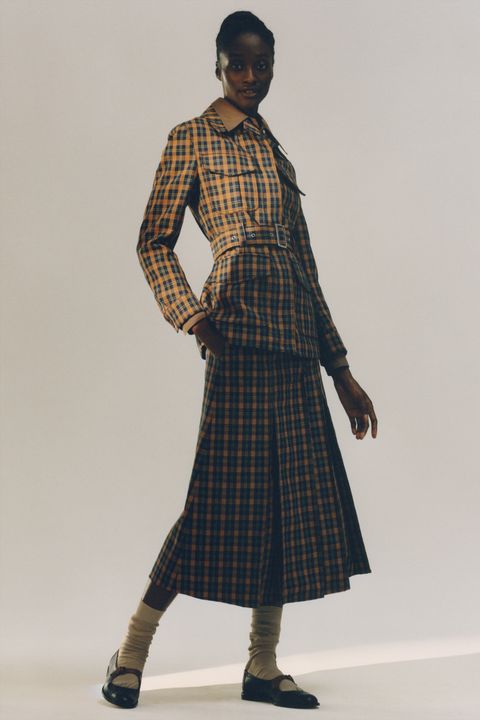
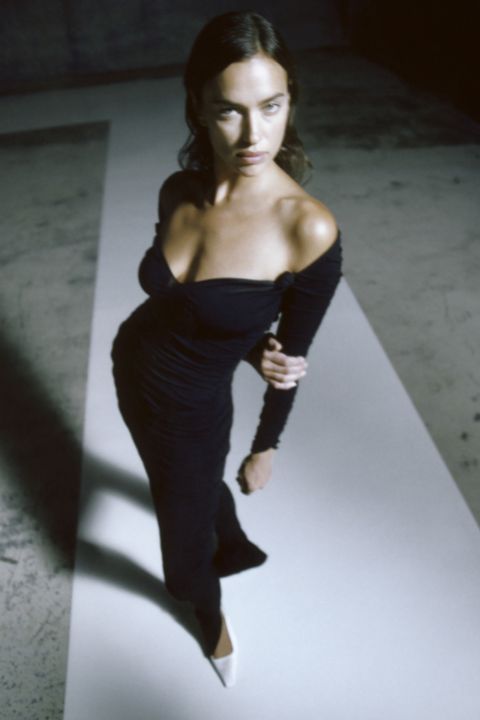
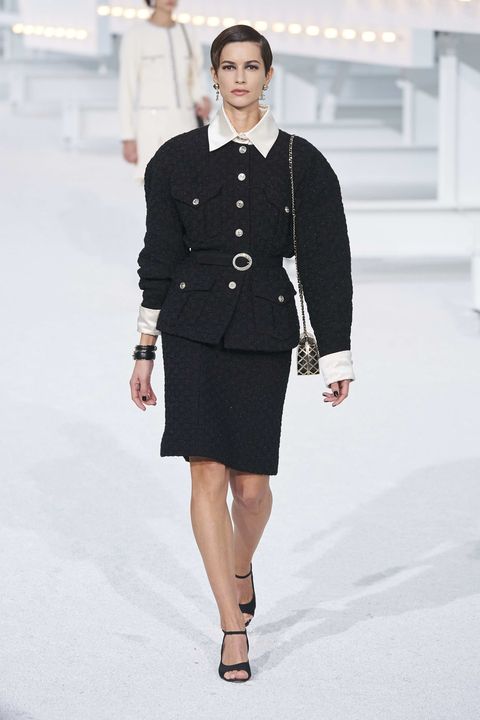















0 Response to "Are trends no longer in fashion? - harpersbazaar.com"
Post a Comment